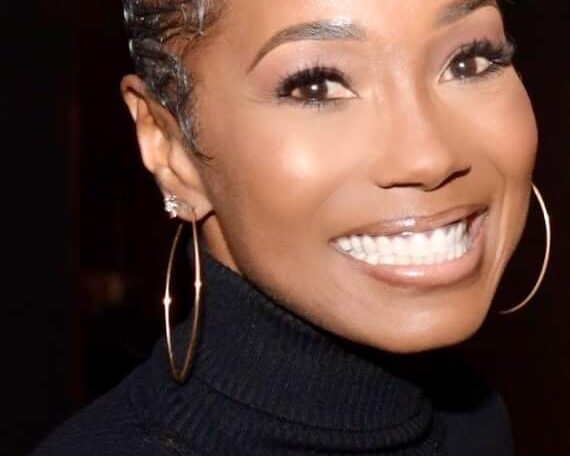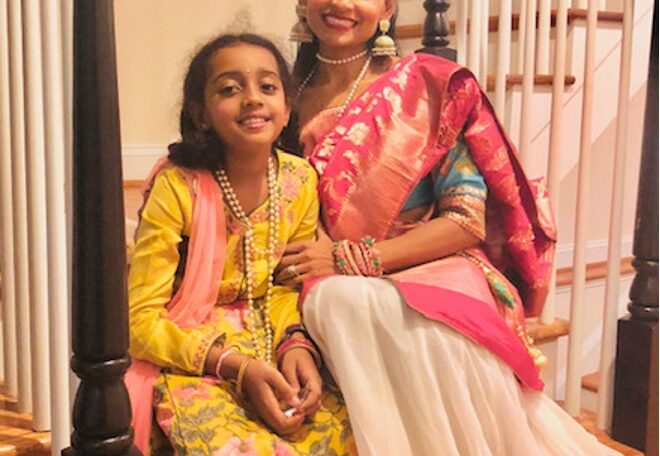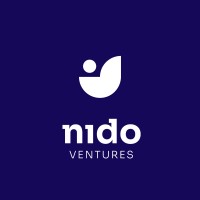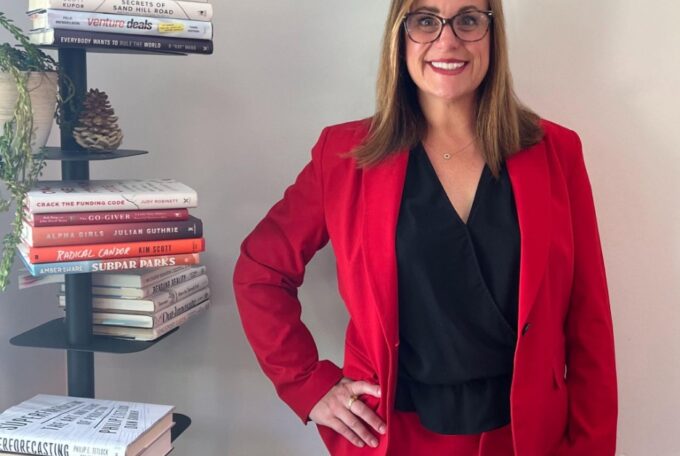Spotlight
Kelly Gage

An accomplished public speaker, educator, advisor, and researcher, Dr. Kelly Mohs Gage is a next generation philanthropist with over 20 years of experience with academic institutions, foundations and NGOs dealing with human trafficking, public media, arts and culture, gender equity, and workforce and community development. As a founding board member of the Carlson Family Foundation, Kelly engaged in the start-up phase of formalizing by-laws, grant application and grant review processes for the family foundation. Kelly has served as a board member for art and design institutions and human rights nonprofits, including World Childhood Foundation-Brazil for over 20 years. She is blessed to pass on her social justice crusade to her children. Discussions of human trafficking, gender parity, climate change and labor rights abuses were commonly held with her two sets of twins from very young ages. International travel has also exposed them to areas of the community and world where socioeconomic differences are openly visible. All four of Kelly’s children are now engaged in their own philanthropic efforts. Her son, Patrick, has spoken globally on human trafficking and migrant/refugee issues and is currently working in politics. Her fashion-designer daughter, Emma, is an advocate against sexual assault on campuses, supply chain sustainability and ethics in the apparel industry, and mental health education. Her younger daughters started their school’s first ever climate change club at the age of 15. Kelly has spoken at over two dozen conferences and venues around the world. After decades of board and advocacy work against human trafficking, Kelly left her tenured Assistant Professor position in 2019 to join the development team at Nomi Network, an anti-trafficking organization with program sites in India, Cambodia and soon in Dallas. Kelly possesses knowledge from multiple angles of philanthropy – personal, family, and professional – and is deeply committed to helping others find their areas of passion.
What are the most important tasks you do to keep the organization successful and moving forward?
As the Director of Advancement at Nomi Network, I am responsible for building donor connections with other people who believe in our mission. Even if our donors are not knowledgeable about the issue of human trafficking, I am the one who encourages them to learn more about and even visit our training sites, as we directly serve at-risk populations of women and adolescent girls on the ground in India and Cambodia. Our programs provide economic empowerment training to trafficking survivors and women and girls at risk of being trafficked. We strive for a world without slavery and are rapidly growing, especially as we approach the launch of our 2021 Dallas program here in the US. I believe that in order to keep the organization moving in the right direction, our program participants consistently need to be at the forefront of our minds. To do that well and effectively, donor engagement and fundraising are our two main priorities so that we can benefit our women and girls. I think the common misconception about fundraising is that it’s financially transactional, rather than creating personal connections with your new partner and friend. That is one of the reasons why I am so passionate about my position at Nomi Network; fundraising is outreach, networking, critical thinking, and understanding the donor to hear what they are most passionate about. The truth of the matter is that people will not give if they are not being heard differently and sincerely. That is why, as an organization, we make it a point to create long term friendships with our donors. We want them to see our success and join us in the fight against human slavery and exploitation, because it can’t be done alone. Our donors are the network of Nomi Network. Because of the generous gifts we have received, we are able to proudly say that Nomi Network is twelve years young and strong. In 2020, we reached a total of 177,267 people in low-income communities in India and Cambodia.
Where do you find inspiration, and how do you connect with other partners and donors?
Partnerships with organizations and individuals occur through word of mouth, whether it be at a corporate event, a conference, or a zoom meeting. My inspiration is sparked when I ask those I’m trying to partner with what global issues they are trying to address and solve, even when it isn’t specifically related to human trafficking or female empowerment. I also get inspired when I hear the stories from our women in India and Cambodia. Prisha’s story is one I’ve heard over and over again – she’s a young woman from India who was abandoned by her husband and left with limited options for work, forcing her to seek out a job in her nearby city – unaware that her new job would lead her into prostitution at the largest brothel in the red-light district. Thankfully, in time, Prisha was connected to an organization that helps women in sex work and prostitution. Staff members told her about Nomi Network’s nearby workforce development training site and after eagerly completing our training programs she began making and selling jewelry. We have watched Prisha succeed and grow as a businesswoman and are amazed by her success as she has expanded into clothing and is now able to support herself. I am so proud to be part of an organization that empowers women to reach their full potential. Stories like this are what inspire our funders to connect with Nomi Network year after year.
When did you realize that Nomi was the right fit for you, both professionally and personally?
I have always had a philanthropic background because my family was passionate about it and encouraged me to continue seeking opportunities associated with it. When I met Diana Mao, founder of Nomi Network, in 2014, I had been involved in trafficking work for many years. I fell in love with Nomi’s mission and the concept of women helping women and joined the board in 2016. This really spoke to me as an educator, too, particularly because at the time I was teaching at an all-women university. In the summer of 2018, I attended the annual board retreat and Diana began to tell me about a position on the development team. Knowing the impactful stories of the women and girls and gaining more understanding of what my role on the team would be, I decided to leave my tenured professor job to join Nomi Network as a team member to live out the philanthropic career I always desired. What inspires me most in my work are the women and girls that we work with. I had the luck to be in India right before Covid hit last year and I met women who were in our first cohort of women in 2012 who couldn’t read when they joined our training who are now master trainers, opening sites in villages far from their own and training more women to be trainers. I met women who said they didn’t know they had any worth before joining our program who are now helping support their families and becoming leaders in their communities. With Covid, we have seen our graduates step up in their communities to become Nomi Network Community Outreach Workers – educating people on proper hygiene to protect themselves and their families, sharing information on the virus and how to access medical care. In 2021, they are once again stepping forward to educate their communities on the vaccine and how to get access. They take what they have learned in our training programs and amplify it in ways we couldn’t even imagine. They are literal inspirations in their own communities and others.
What inspired you to get involved and focus on foundation work?
I have been involved in the anti-trafficking movement for over 20 years, starting with my time on the Brazilian board of World Childhood Foundation, which was started by Her Majesty, Queen Silvia of Sweden, and The Carlson Family Foundation is a co-founder of the foundation. This connection was really the first introduction for everyone to anti-human trafficking work. My year as a Rotary Exchange student in Brazil (prior to attending Northwestern University) gave me language skills to join the Brazilian board and really learn about the anti-trafficking world there. My son, Patrick, was the first family member to meet Diana Mao, co-founder of Nomi Network, when he spoke on a panel with her at the White House. He joined the organization’s board of directors in 2014 and he introduced me to Diana, which led to me eventually joining the organization full time. What excites me right now about this work is that Rotary International and other global organizations are looking at the issue of human trafficking and Nomi Network is working to partner with organizations like these to eradicate exploitation.
How are you “Changing the Room”?
In philanthropic work there is a lot of talk about systems change, and it is generally looked at from the grantee side or the beneficiary side. What is a non-profit doing to change the system that assisted in creating a problem? What is a non-profit doing that creates change for generation after generation of people? This is very, very needed when addressing systemic problems like human trafficking. Nomi Network is all about systems change. I also believe system change must be considered on the funder and family office side. From a personal family perspective, anti-trafficking work, social justice, arts support, and general philanthropy have always been a part of our conversations. My children grew up watching my husband and me and our involvement in philanthropy that supported domestic and global efforts and they have followed in our footsteps. Their grandparents, aunts and uncles are also heavily engaged in many areas of philanthropy. I believe that because of this atmosphere, my children and their cousins have been a pivotal addition to the family foundation board because of their ability to bring their own focus and voice to the table. Our family foundation has moved into the fourth generation of family members sitting on that board, including my two older children. This specific group of young adults is impeccably creative, politically minded, diverse, and well-rounded. The work ethic within my family has been passed down to all my children, making their own career paths unique in a variety of areas. I am excited to see how they change the room.





